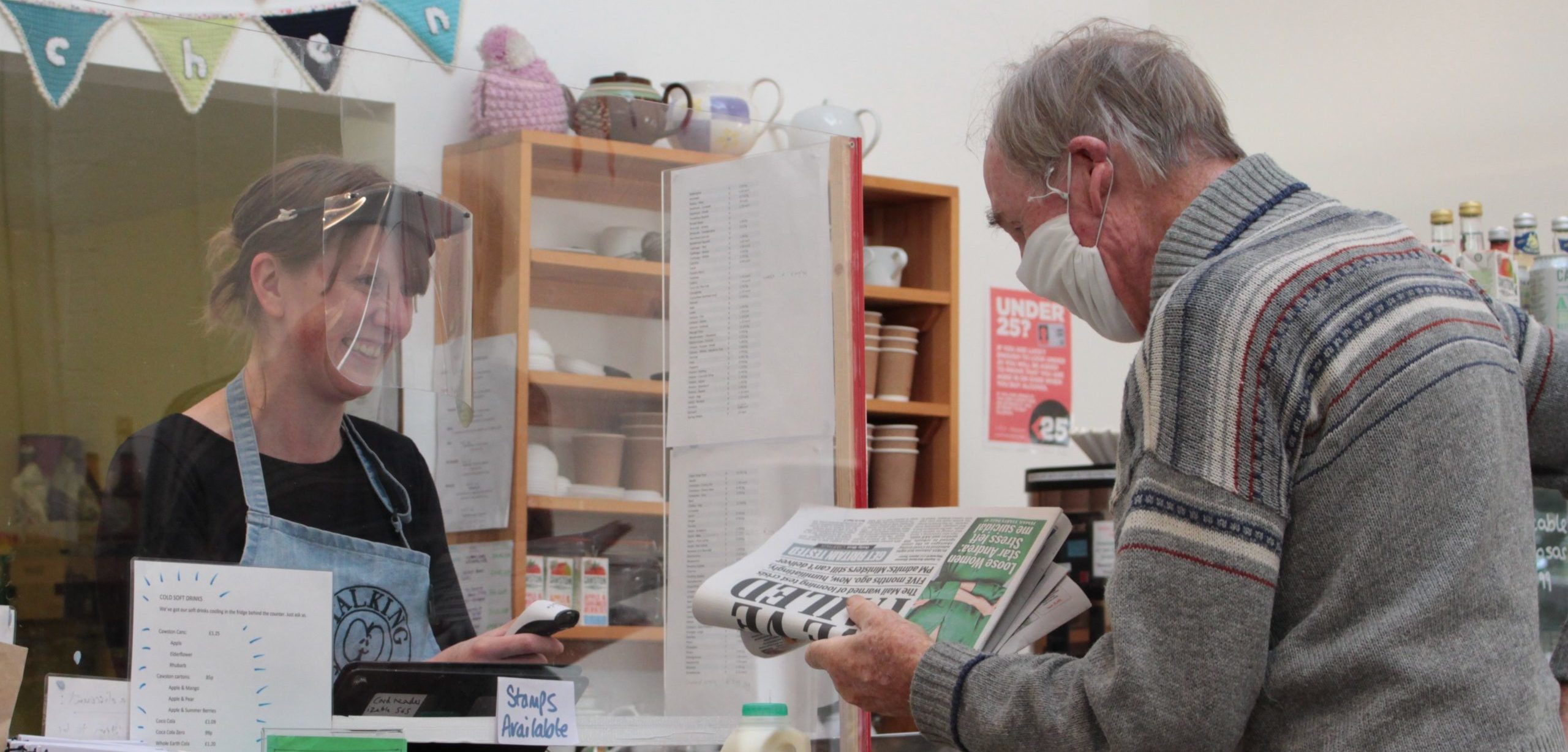James Alcock, Plunkett Foundation’s Chief Executive, explains the issues many communities face in accessing healthy, nutritious food in rural areas.
Amongst the many difficulties we have all experienced in the past year, our members and a wide variety of community-owned businesses have seen at first hand the vulnerability of the UK’s food system and never more so than in rural areas.
The difficulty of obtaining food during the pandemic and the community-led response that followed has prompted us to see the potential for community businesses to play a greater role in food supply and creating fairer access to food for all.

Many community-owned pubs, shops and other businesses stepped-up to support the isolated and vulnerable within their towns and villages, providing food parcels, direct deliveries, ensuring a local supply of essentials and providing a vital connection within the community. However, though much needed, this activity exposed fundamental flaws in the UK’s current food system which result in injustice and inequality for many, including entire rural communities and especially those on lower incomes.
Food is more expensive and less available in rural areas with the majority of rural residents having little or no choice but to travel. In the past ten years we’ve seen 4,000 village shops close, 3,300 rural bus routes have been cut and 50% of rural residents still experience poor digital connectivity – limiting online grocery shopping. Those with poor health, low income, without access to a private vehicle or people living alone struggle to find local food that is healthy, nutritious and affordable.
Many rural retailers were let down by the centralised wholesale systems and were unable to access the most basic goods and supplies. There are few regions or even counties producing sufficient diversity of goods to cater for local self-sufficiency, but there is a growing interest from communities wanting to reverse this trend by setting up community-owned farms and agroforestry, wishing to embrace mixed farming practices and by being able to source and sell locally produced food.
The development of community-owned businesses which focus on the production, processing and retailing of food and drink could provide the potential for a fundamental shift away from internationally sourced food and place communities at the heart of local food systems to improve fair and equal access to fresh, healthy and nutritious food for everyone.

In the last 25 years, Plunkett has helped establish over 700 community businesses from farms, vineyards, fisheries, harbours, dairies, distilleries, bakeries, famer’s markets, village shops and pubs, and has helped to put food supply in the hands of local communities.
Driving change:
Later this month, Plunkett will bring together organisations that have a vital role to play in bringing the resources, expertise and enthusiasm to drive change and make a long lasting impact on how we produce and consume food within our own communities.
This meeting will take place on Thursday 14 October at Fordhall Farm, in Shropshire – a community farm that has used a sustainable food system approach for decades. It will be supported by Welbeck Land who through its commitment to creating sustainable, inclusive and vibrant places recognise the valuable contribution community businesses can make in ensuring that everyone has access to affordable and healthy food.
It is more timely than ever before to put community at the front and centre of our food production and supply to truly address the imbalance that we see in everyday access to food.
James Alcock, Chief Executive





